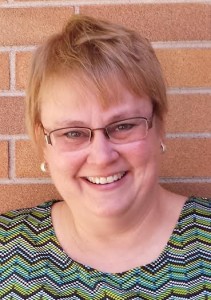Catherine Gilliard is co-senior pastor of New Life Covenant Church in Atlanta, Georgia.
My heart is breaking and my resolve has strengthened. With each newscast about another encounter involving an abuse of power or another incident where systemic injustice remains unchallenged, I have become more aware of the silence of women of faith. Let’s be real, my sisters, women are gifted, relational and influential. Yet somehow our voices are missing from these critical conversations happening across our nation right now.
Shaped by the words of Proverbs 31:8-9 women who lead and serve in the church can move from silence into this unique season where gifts of organizing, advocacy and leadership are so needed. Speak up for those who cannot speak for themselves, for the rights of all who are destitute. Speak up and judge fairly; defend the rights of the poor and needy.
We should paste these words on our mirrors as a reminder to us as we wake each morning that each day will bring with it an opportunity to speak for the voiceless, to understand the facts so we can judge fairly and to move into action in defense of the poor and needy. Seasoned with our own stories of struggle, women of faith can name the faceless nature of evil. Our own life journeys give us an unique ability to recognize the intricate ways in which marginalization and class distinctions weave strong webs of isolation and domination. Women who lead and serve in the church are called to speak words of truth that are seasoned with love and to connect the dots for others who have the power to release those who are oppressed and denied access to needed resources by systems of injustice. My heart breaks, but my resolve is strengthened to inspire women to join the national conversation. Our voices are needed, our perspectives required and our stories must be included if we are to break the collective silence women of faith on issues of injustice. Continue Reading »








The Church in the Round: An Image of Biblical Equality
Filed under: Book & Commentary
Jo Ann Deasy is an ordained Covenant pastor currently serving as the director of institutional initiatives and student research at the Association of Theological Schools in Pittsburgh, PA.
One of my favorite books on ecclesiology (that just means theology that focuses on the church) is Letty Russell’s The Church in the Round: Feminist Interpretation of the Church. Russell presents a single central image for her theology of church: the table. She draws on the biblical images of the eschatological banquet table, of Jesus dining with tax collectors and sinners, and of the last supper. This image of the church as a table, particularly as a round table, calls the church to be a place of equality, hospitality, and justice.
Russell draws on three specific table concepts to ground her work: a round table, a kitchen table, and a welcoming table. Perhaps central to these is the image of the round table. These images connect well with the Evangelical Covenant Church, a denomination that began with individuals gathered into small groups, perhaps around a table, to read and study the scriptures. It connects well with a denomination that emphasizes relationships and a sense of family, those who might be gathered in the kitchen for coffee and conversation. It connects well with a denomination that believes all who have faith in Jesus Christ should have a place at the table, an equal place regardless or race, gender, class, or age. Russell’s images evoke what is at the heart of the denomination and push us to consider the full implications of our commitment to the church as a fellowship of believers committed to the whole mission of God. Continue Reading »
Report This Post